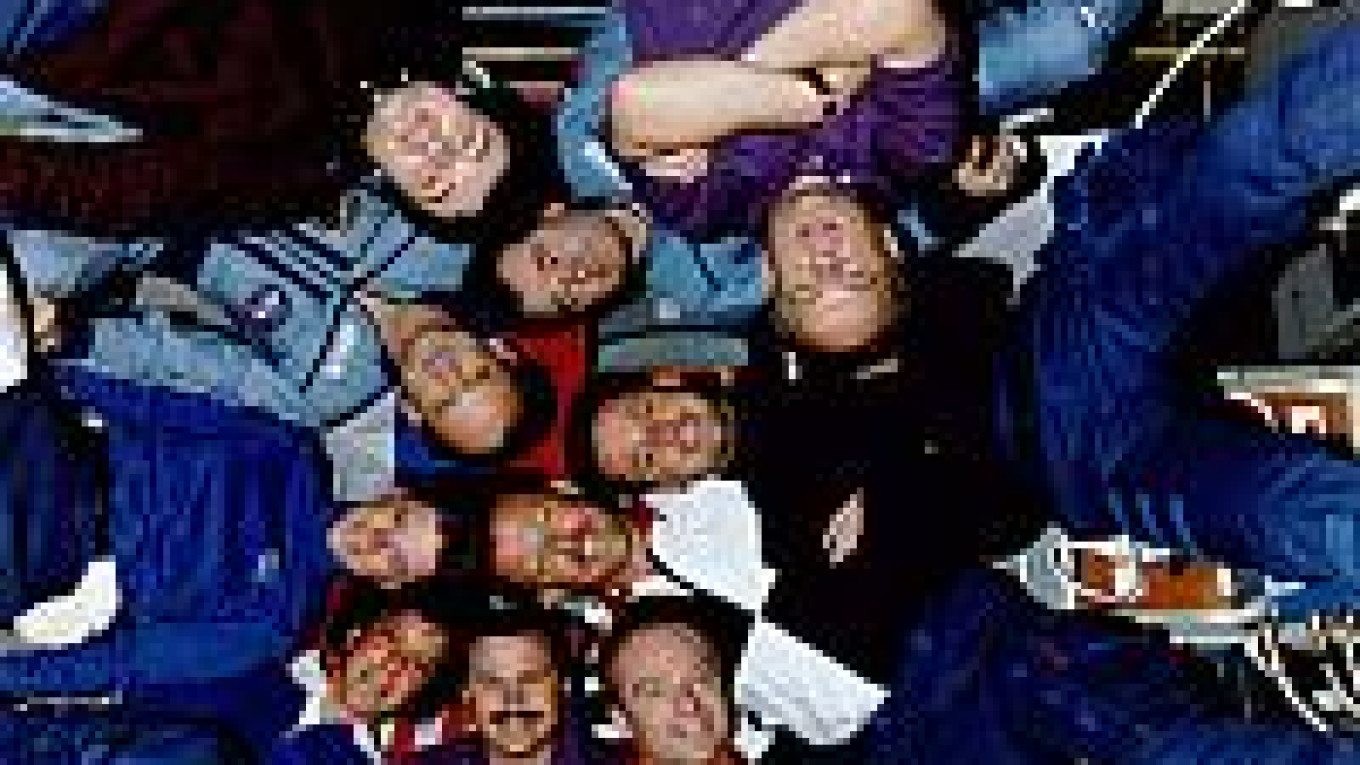Strekalov died Saturday in Moscow. Space officials said he had recently been diagnosed with cancer.
Strekalov's former boss, Yury Semyonov, the head of rocket builder Energia, praised him Sunday as "one of the most outstanding cosmonauts."
Strekalov was born in Mytishchi, an industrial town just outside Moscow, and after finishing school began working at a space factory, helping assemble the world's first satellite, which was put into orbit in 1957. In 1965, he graduated from the Moscow State Technical University and began working as an engineer at the Soviet rocket-building company led by Sergei Korolyov, the father of the Soviet space program. Strekalov began training to be a cosmonaut in 1973 and made his first, two-week space mission in 1980, winning the medal of the Hero of the Soviet Union, the highest Soviet award.
His next space mission, in 1983, in which he flew together with two crewmates, ended two days after their Soyuz spaceship failed to dock at the Salyut-7 orbiting station.
The next launch nearly cost him and crewmate Vladimir Titov their lives. Their Soyuz booster rocket caught fire less than 15 seconds before blastoff from the Baikonur Cosmodrome on Sept. 26, 1983. The two cosmonauts bailed out to safety just four seconds before it exploded in a giant fireball.
Semyonov, who witnessed the 1983 launchpad explosion, said both cosmonauts displayed exceptional composure. "They behaved bravely, and they only said they were feeling fine," he told reporters at the Mission Control center just outside Moscow.
Despite plunging through the sea of fire that engulfed the rocket, Titov proudly recalled that they managed to avoid resorting to obscenities. "Every word was being recorded," Titov said.
Strekalov flew another weeklong mission to the Salyut-7 station in 1984, winning his second Hero of the Soviet Union medal. He completed his fourth mission in 1990. He flew his fifth and final mission in 1995 together with Russian and American crewmates on the Mir space station. That last mission triggered Strekalov's conflict with Russian space officials, who stripped him of some benefits for refusing to make a spacewalk. Strekalov, who cited safety concerns, went to arbitration after his return from space and won the money back.
A Message from The Moscow Times:
Dear readers,
We are facing unprecedented challenges. Russia's Prosecutor General's Office has designated The Moscow Times as an "undesirable" organization, criminalizing our work and putting our staff at risk of prosecution. This follows our earlier unjust labeling as a "foreign agent."
These actions are direct attempts to silence independent journalism in Russia. The authorities claim our work "discredits the decisions of the Russian leadership." We see things differently: we strive to provide accurate, unbiased reporting on Russia.
We, the journalists of The Moscow Times, refuse to be silenced. But to continue our work, we need your help.
Your support, no matter how small, makes a world of difference. If you can, please support us monthly starting from just $2. It's quick to set up, and every contribution makes a significant impact.
By supporting The Moscow Times, you're defending open, independent journalism in the face of repression. Thank you for standing with us.
Remind me later.


